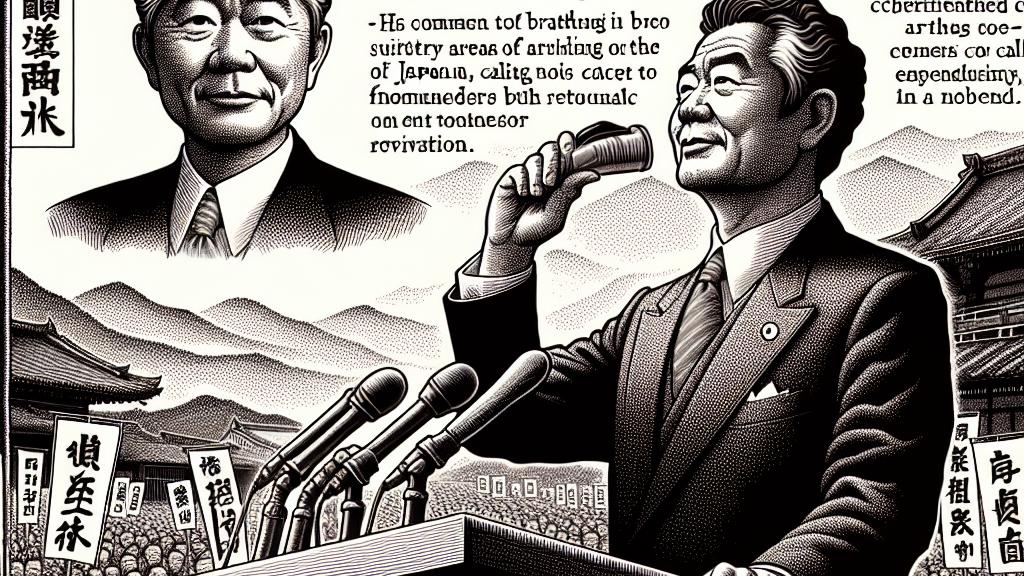Shigeru Ishiba's Diplomatic Approach as Japan's New Prime Minister
Overview
- Shigeru Ishiba, a long-time political figure, is set to officially assume the role of Japan's Prime Minister on October 1.
- His bold vision of creating an Asian version of NATO reflects Japan's growing security concerns amid regional tensions.
- Experts predict a blend of continuity and cautious change as Ishiba navigates Japan’s intricate diplomatic landscape.

A New Chapter in Japanese Politics
On October 1, 2024, Japan will welcome Shigeru Ishiba as its new Prime Minister, marking a momentous shift in leadership. Known for his direct communication style and extensive political experience, Ishiba has long been recognized as a leading voice within the Liberal Democratic Party. His ascent to power follows a wave of scandals under former Prime Minister Fumio Kishida, prompting a national rallying cry for renewed trust and integrity in governance. Ishiba’s commitment to revitalizing Japan's rural areas is refreshing, echoing the sentiments of citizens yearning for economic rejuvenation. By addressing both urban and rural issues, he aims to resonate with a broader audience, fostering unity and hope in a time of uncertainty.
Navigating Regional Security Challenges with Innovative Proposals
Ishiba's proposal for an Asian NATO stands out as a daring initiative in a period marked by geopolitical strife, particularly with China’s assertiveness in the Taiwan Strait and North Korea's unpredictable actions. His notion of collective security—where nations collaborate to ensure mutual defense—might seem ambitious, but recent events have made it urgent. Consider the recent instances of Chinese aircraft breaching Japanese airspace; these incidents highlight the necessity for heightened cooperation among Asian nations. Although critics dismiss his Asian alliance idea as fanciful, it underlines an important truth: Japan must adapt to the rapidly changing security dynamics not only in its backyard but across the entire Asia-Pacific region. Ishiba’s vision engages regional allies and seeks to weave a tapestry of defense partnerships that bolster Japan’s national security while promoting stability.
Steering Towards a Stable and Collaborative Future
As Ishiba prepares to take on the responsibilities of leadership, analysts expect him to uphold the diplomatic strategies nurtured during Kishida's administration. This continuity is vital, particularly in enhancing Japan's defense capabilities and fostering its alliance with the United States. By echoing Kishida’s mantra that ‘Ukraine today may be East Asia tomorrow,’ Ishiba positions Japan as a vigilant player in global security discussions. However, the true test of his leadership will lie in balancing robust defense initiatives with essential diplomatic dialogues, especially with countries like China. His determination to stabilize Sino-Japanese relations—despite rising tensions—reflects a pragmatic approach that seeks peace without compromising security. Ultimately, by blending bold ideas with prudent actions, Ishiba aims to not only safeguard Japan but also contribute positively to regional peace and prosperity.

Loading...